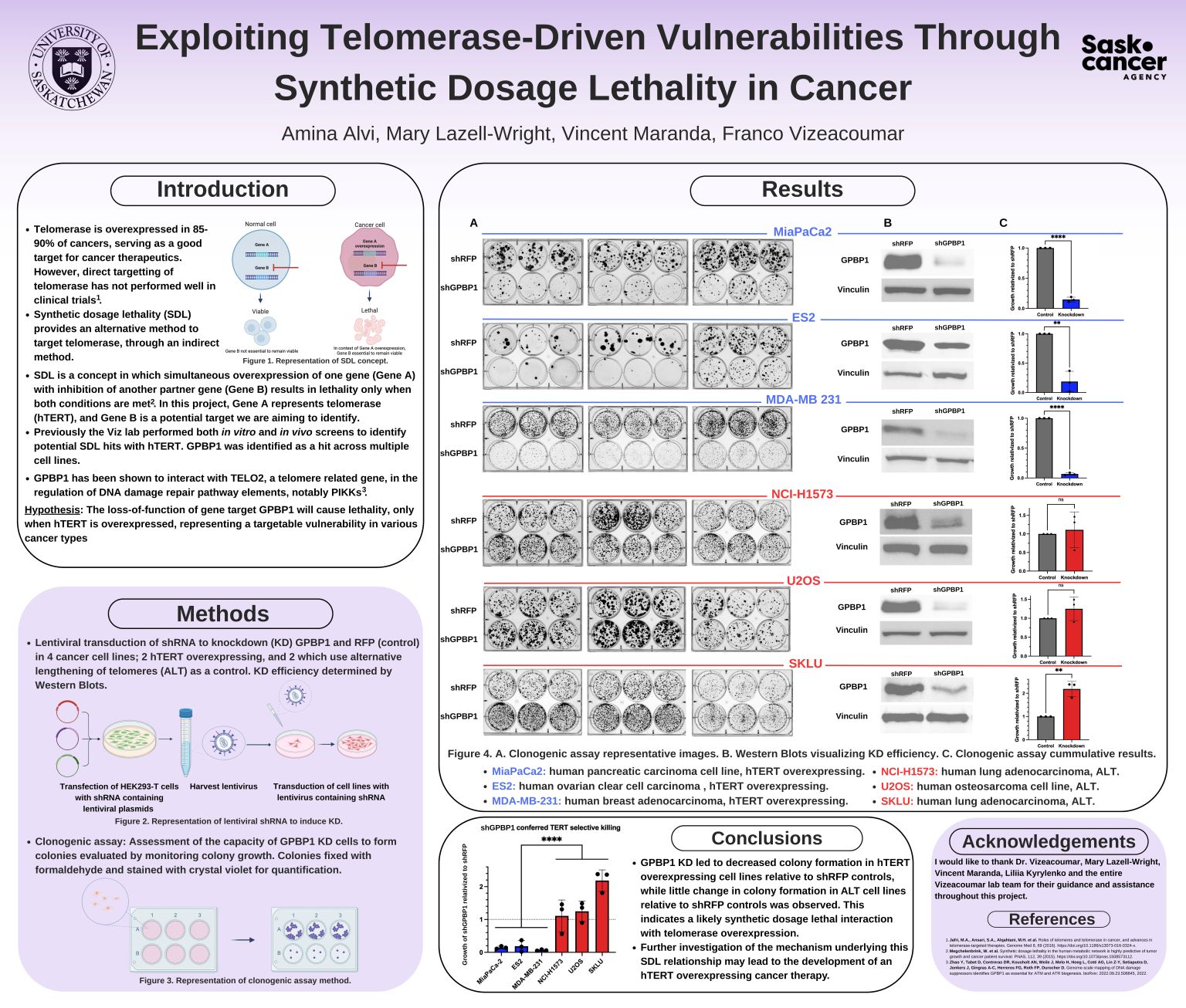
Exploiting Telomerase-Driven Vulnerabilities Through Synthetic Dosage Lethality in Cancer
Amina Alvi
hTERT, the gene encoding telomerase, is overexpressed in 85-90% of cancers, allowing these cancers to regenerate their telomeres and achieve cell immortality (1–3). Attempts have been made to target telomerase directly to inhibit cancer cell growth, however they have not performed well in clinical trials (4). Synthetic dosage lethality (SDL) is a concept in which simultaneous overexpression of one gene with the inhibition of another partner gene results in cell death only when both conditions are met (5). Given that telomerase is overexpressed in many cancers, it is a promising target for SDL therapy.
Previous screens in the Vizeacoumar lab identified gene GPBP1 as potential SDL partner with hTERT (6). The goals of this project were to validate GPBP1 as an SDL partner with hTERT. We hypothesized that loss-of-function of GPBP1 would cause lethality, only when hTERT is overexpressed, representing a targetable vulnerability in various cancer types. Clonogenic assays with knockdowns (KD) of GPBP1 using lentiviral shRNA were performed in hTERT overexpressing and hTERT negative cell lines, with shRFP controls. Western blots were used to verify KD efficiency. Results of these assays have validated GPBP1 as an SDL partner with hTERT, showing selective lethality in hTERT-overexpressing cell lines.
